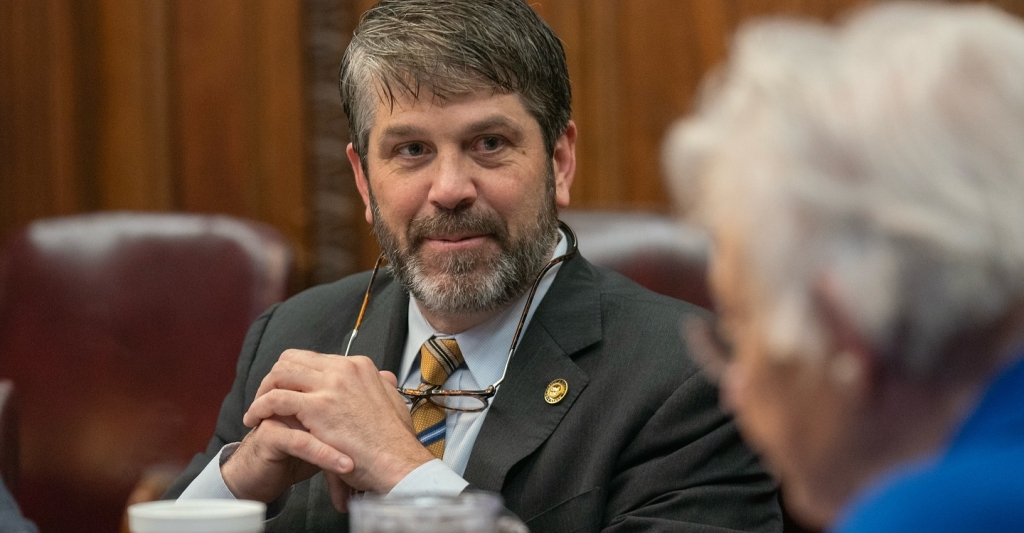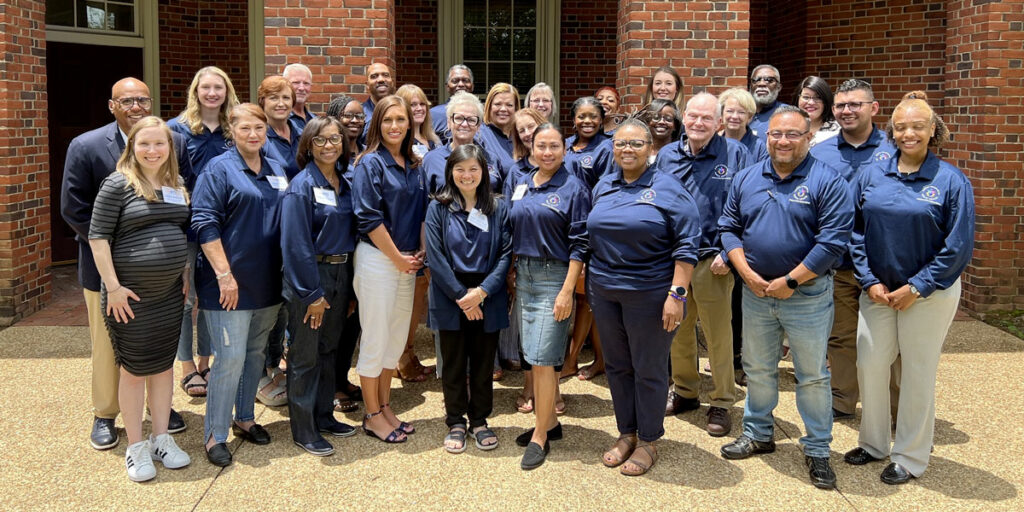May 2016 will be a time that Jan Walker will never forget.
Walker, a retired administrative assistant to the superintendent of Boaz City Schools, was getting ready for her regular doctor visit and noticed a lump on her neck. Her primary care physician examined it and determined it was a simple swollen lymph node. Two months later, she began to lose feeling on the right side of her throat and noticed the lump had increased in size.
After seeing other doctors for multiple opinions, she was sent to UAB Hospital, where she met with Department of Otolaryngology Assistant Professor Benjamin Greene, M.D., and found out something she had feared – it was cancer: oropharyngeal cancer, to be precise.
“I was really upset,” Walker said. “My mom lost her battle with breast cancer, and this just really scared me. The first initial shock of being diagnosed made me think I was going to die, but I’m one of the lucky ones.”
According to Greene, oropharyngeal cancer – the oropharynx includes the tonsils and base of tongue – is a fairly uncommon cancer in general. In non-smokers, in these particular areas, the cancer is usually caused by HPV. The Centers for Disease Control and Prevention reports that about 3,200 cases of oropharyngeal cancers were found in women last year and about 13,000 in men in the United States. Walker did not smoke or drink alcohol, which put her in a rare group when she received her diagnosis.
“In general, the five-year survival rate of oropharyngeal cancer has been less than 50 percent,” Greene said. “Of course, this depends on stage at the time of diagnosis; however, we are finding that people who do not smoke or drink heavily do much better. In people who have cancer caused by HPV, the five-year survival rates can be 80-90 percent.”
After receiving her diagnosis, Walker, a Glencoe, Alabama, resident, began her treatment plan in September 2016 and included 35 radiation treatments and five chemotherapy treatments. Doctors also had to put in a port and feeding tube because the radiation made Walker’s throat irritable. Her patient navigators helped set appointments with UAB speech therapists and nutritionists so she could learn how to cope with her new way of life during treatment.
“I had a feeding tube – which probably was the worst part about the treatment – but the doctors told me to be conscious about swallowing so I wouldn’t lose muscle control,” Walker said.
Greene says radiation and chemotherapy for the head and neck can be very hard on people.
“All treatments for this type of cancer can be potentially disfiguring and debilitating,” he said. “It can affect the way we eat, the way we speak and the way we look, as well as our general quality of life.”
After five months of treatment and multiple subsequent follow-up visits, Walker received the news that she was cancer-free in March 2018. She will still have to see her UAB physicians every three months, but she has a new outlook on life and on what could have been a completely disheartening experience.
“This has changed my outlook on life tremendously,” she said. “It has made me closer with God, and I realize now that we’re not promised tomorrow. It was tough on my husband, Tolly, and two sons; but we got through it. We’re much closer as a family.”
Greene says the most important thing people can do to prevent these types of cancers is to quit smoking. Even though HPV is causing more head and neck cancers, smoking is still the No. 1 cause of these diseases. Greene also says it is very important that people go to their doctors whenever they have a sore throat or hoarseness that won’t go away.
“Cancers of the throat can masquerade as many things, such as ear pain, sore throat, hoarse voice, difficulty swallowing, coughing up blood or loose teeth,” Greene said. “Anything that is concerning should prompt a visit to a dentist, primary care doctor or otolaryngologist. It is extremely important to note that any enlarged lymph node or enlarged gland in a person over 40 is not normal and should be examined immediately. In general, people who have their head and neck cancers diagnosed early do much better in the long run and often need less-aggressive treatment.”
The UAB Department of Otolaryngology stands among the nation’s leaders in its field. Physicians provide advanced care across the spectrum of head and neck disorders with surgeons practicing in six areas of specialty. For more information, visit www.uab.edu/medicine/otolaryngology.
(Courtesy of Alabama NewsCenter)












